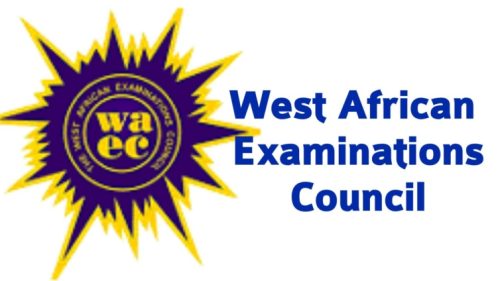
The Youth Ministry of Education under The Youth Empowerment Consortium (YEC) has lamented lack of transparency in the assessment processes of external examination bodies, particularly the West African Examinations Council (WAEC) and some of the Universities in Ghana.
According to the Youth Ministry of Education, students have access to marked scripts after results of Basic Education Certificate Examination (BECE) and the West African Senior School Certificate Examination (WASSCE) are released.
In a Press Release issued by Hon. Wisdom Matey said the credibility of the educational assessments become questionable if students are denied access to their marked scripts.
“Once students complete their examinations, they are left at the mercy of the council’s marking process whether good or bad, “ceteris paribus” all things been equal. Scripts are marked and scored, results are announced, grades are awarded, Chief examiners release their report and that is the end of the story, so awful. Students, parents, teachers and even stakeholders have no access to the actual scripts to understand how marks were allocated, where errors occurred or whether there was any mistake in the grading and the computation of the results just the release of chief examiners report and a press release from the council and at times marking schemes flying on social media platforms at the mercies of teachers.” Part of the release read.
Below is the full press release:
THE PROBLEM OF THE CENTURY IN ASSESSMENT IN EDUCATION, WAEC
One of the most persistent and troubling issues facing education in West Africa, Ghana to be precise today is the lack of transparency in the assessment processes of external examination bodies, particularly the West African Examinations Council (WAEC) and some of the Universities in Ghana.
This has become what The Youth Ministry of Education under The Youth Empowerment Consortium (YEC) call “the problem of the century”. An educational system where students write summative examinations such as the Basic Education Certificate Examination (BECE) and the West African Senior School Certificate Examination (WASSCE), yet they are denied access to their own marked scripts after results are released. WAEC’s Culture of Secrecy since time immemorial is sickening where they has operated under a veil of secrecy when it comes to examination scripts.
Once students complete their examinations, they are left at the mercy of the council’s marking process whether good or bad, “ceteris paribus” all things been equal. Scripts are marked and scored, results are announced, grades are awarded, Chief examiners release their report and that is the end of the story, so awful. Students, parents, teachers and even stakeholders have no access to the actual scripts to understand how marks were allocated, where errors occurred or whether there was any mistake in the grading and the computation of the results just the release of chief examiners report and a press release from the council and at times marking schemes flying on social media platforms at the mercies of teachers.
This lack of access fuels suspicions, mistrust and allegations of unfairness. We are in the twenty first century and the time has come for the examination body to be called to order by all West African countries who takes part in this external summative examination. The Education Ministry has noticed with great concerns as well in the case for some tertiary institutions.
From 2013 to 2016 as a teacher trainee, I have personally written end of semester examinations conducted by the University of Cape Coast (UCC) without having access to my scripts of which I have questioned and quizzed till date but no answer. With this, The Youth Ministry of Education have seen that, the problem is not limited to WAEC alone. Tertiary institutions which serves as centre of higher learning and academic excellence, often follow a similar path failing to release examination scripts to students after grading. This practice leaves students in the dark, unable to learn from their mistakes or contest and protest possible errors in their grades and results.
The issue of remarking has been instituted to put fear and panic into students who are really good but weak financially to call for remarking of their scripts as a result of this archaic clause used by WAEC. The glaring irony becomes clear when we compare this situation to what is required of classroom teachers at the pre tertiary and the tertiary levels. Teachers are expected to plan and deliver specific, measurable, achievable, realistic and time bound lessons to reflect behavioral and observable traits in learners. In so doing, teachers are expected to;
Give class exercises and provide immediate feedback.
Conduct School-Based Assessments (SBAs) and Class Assessment Tests and quizzes and discuss feedback with learners. Administer end-of-term or semester examinations, mark scripts and release results with report after discussing the outcomes with both students and if possible with parents and guardians.
This creates a transparent feedback loop that is essential for learning and growth. Students understand where they excelled and where they went wrong. Parents are also kept informed, making the process participatory and open. If teachers at the classroom level are required to provide such levels of openness and feedback, why should WAEC and the tertiary institutions be exempted?
The refusal to release scripts creates an environment that encourages suspicions of malpractice and administrative errors. If WAEC and universities were required to release examination scripts to students, a lot of problems would be solved since students would understand their mistakes and improve.
Also, marking and remarking processes would become transparent because students could compare their scripts with the marking scheme. The culture of examination malpractices could be reduced if students knew their papers would be available for scrutiny afterward and accountability would be enforced at all levels of assessment.
It is time for WAEC, tertiary institutions and other examination bodies to adopt the basic principles of feedback and transparency that teachers already practice at the pre-tertiary level of education. Education is meant to build knowledge, correct errors and foster personal growth and this can only happen when students are allowed to learn from their mistakes through open access to their marked scripts.
Failure to do so will continue to cast a dark shadow over the credibility of our educational assessments, perpetuating the problem of the century that has existed since time immemorial. If teachers can do it, WAEC can do it too and they must do it. Congratulations to Ghana for the successes chopped for the pat sixty-eight (68) years in education through various reforms to shape the country and as we celebrate another milestone as a country, the Youth Ministry of Education therefore call on all stakeholders, policy makers and the government of Ghana to bring all hands on desks to make sure this issue is resolved amicably to make the administration of test items more transparent.
Hon. Wisdom Matey
Youth Minister for Education
Youth Model Cabinet (YMC)
Youth Empowerment Consortium (YEC)
+233 549 573 222
Source: Elvisanokyenews.net
 ElvisAnokyenews Latest News Portal
ElvisAnokyenews Latest News Portal



